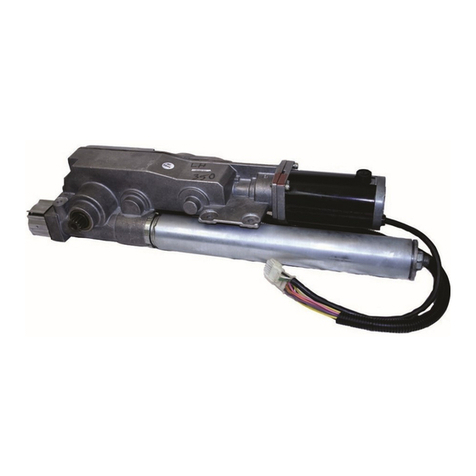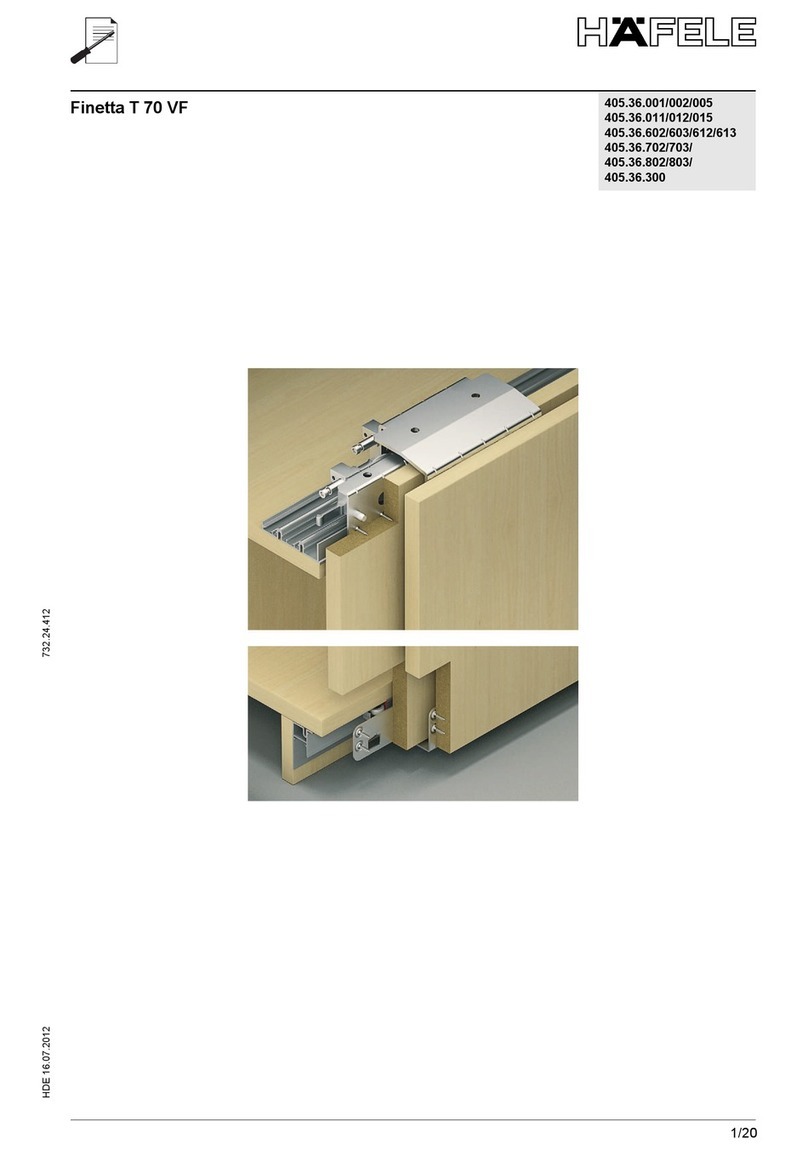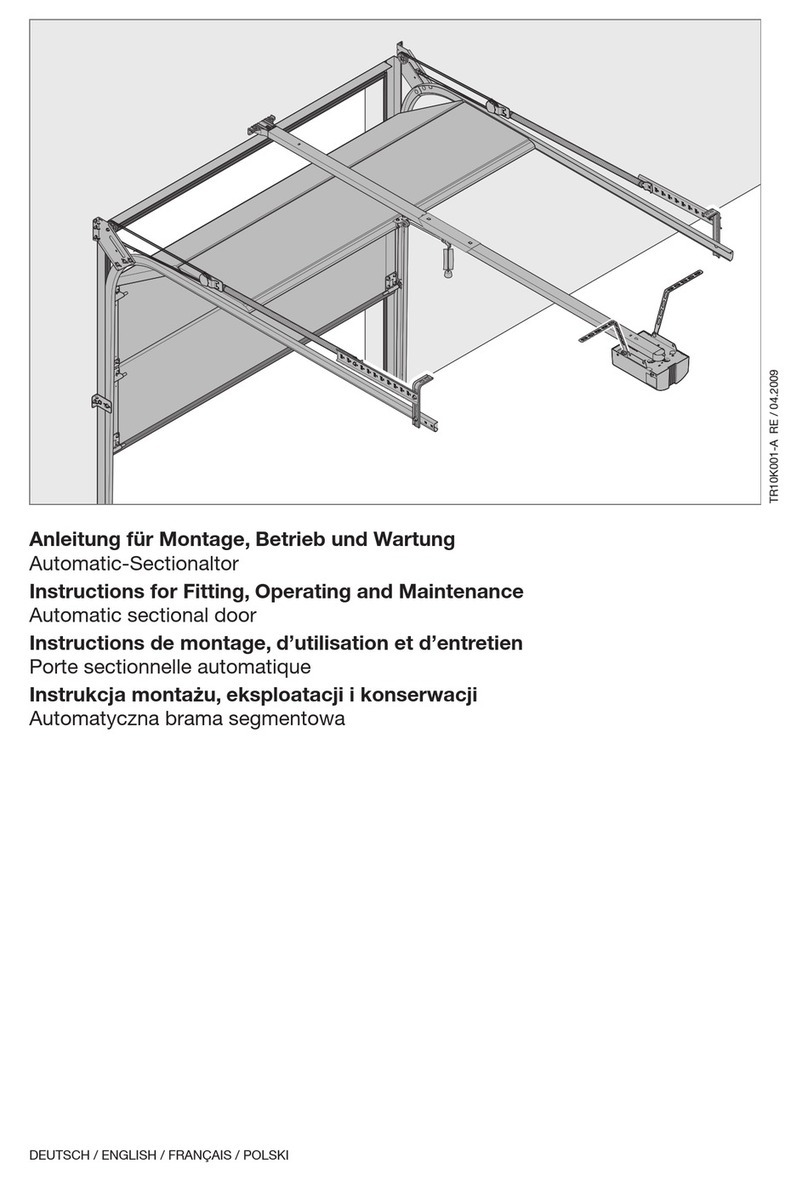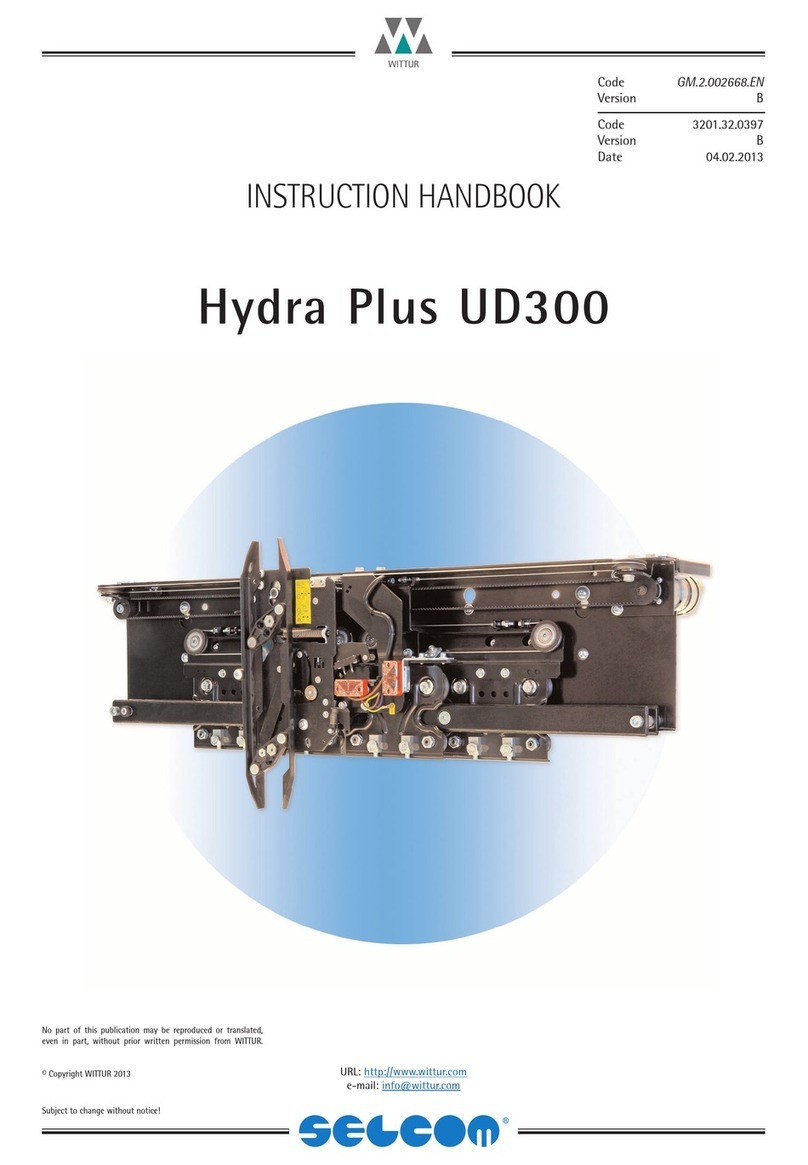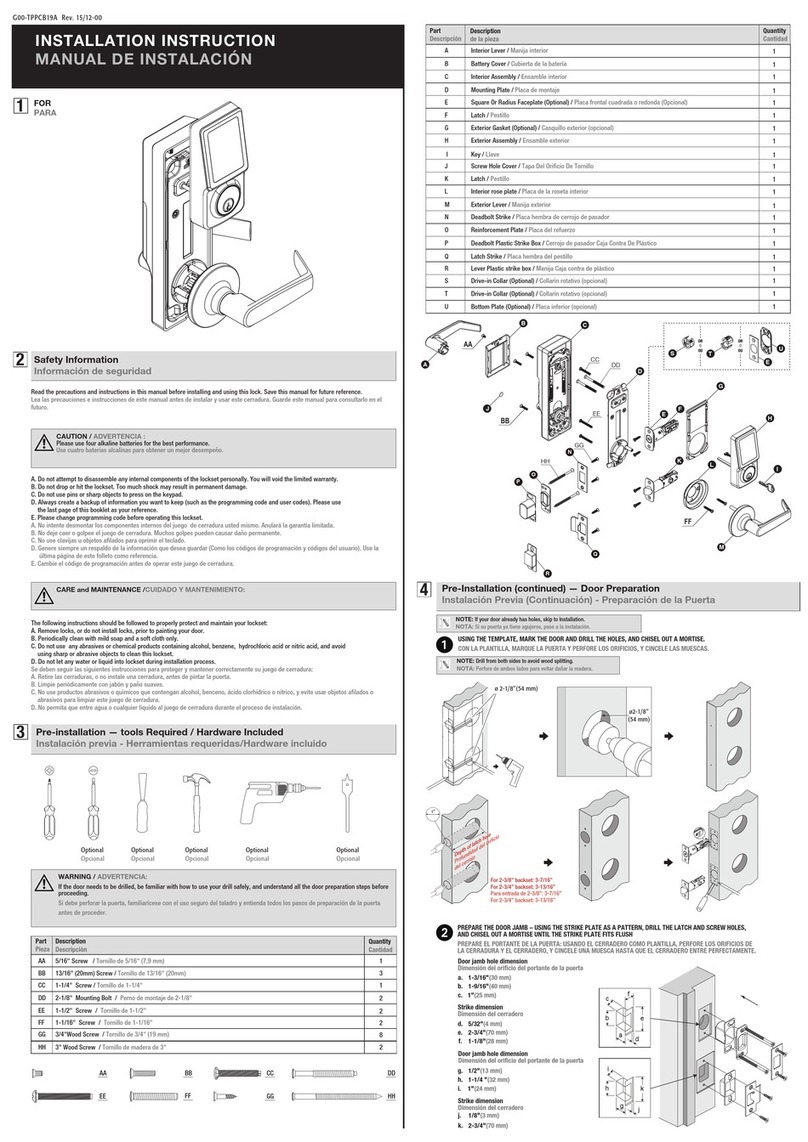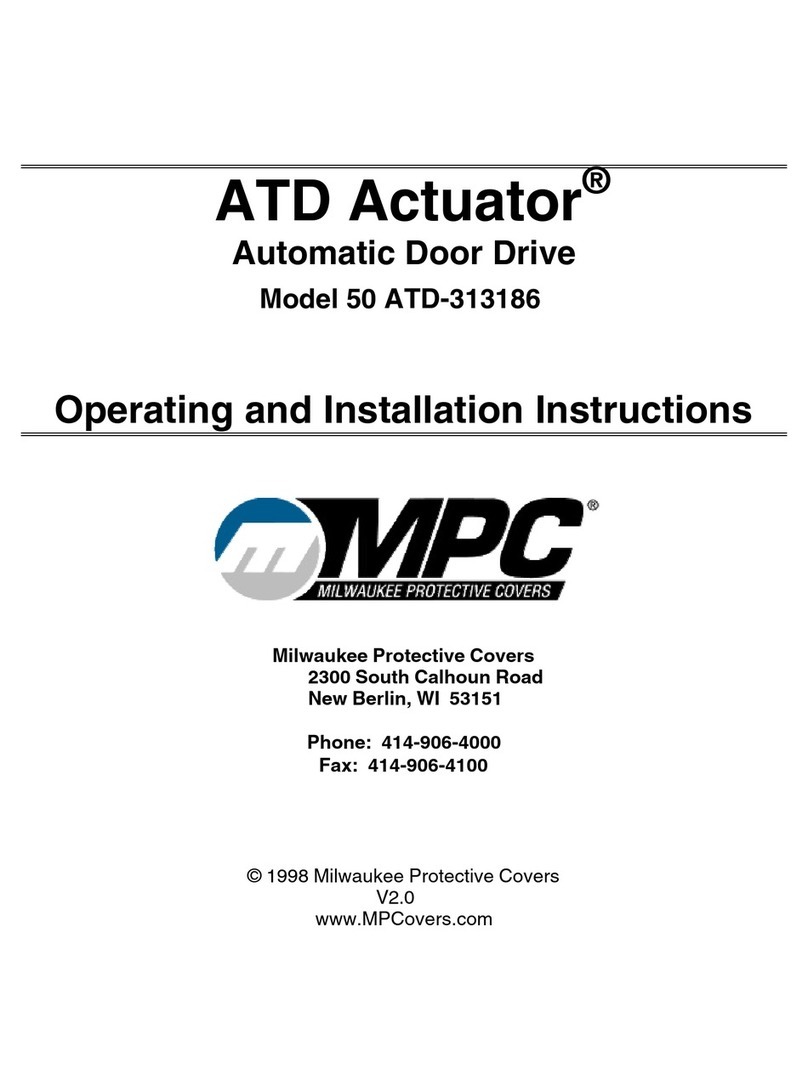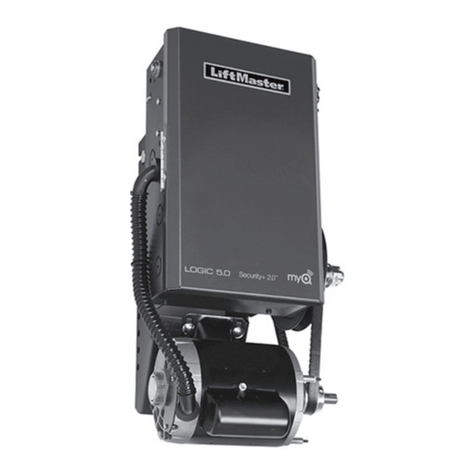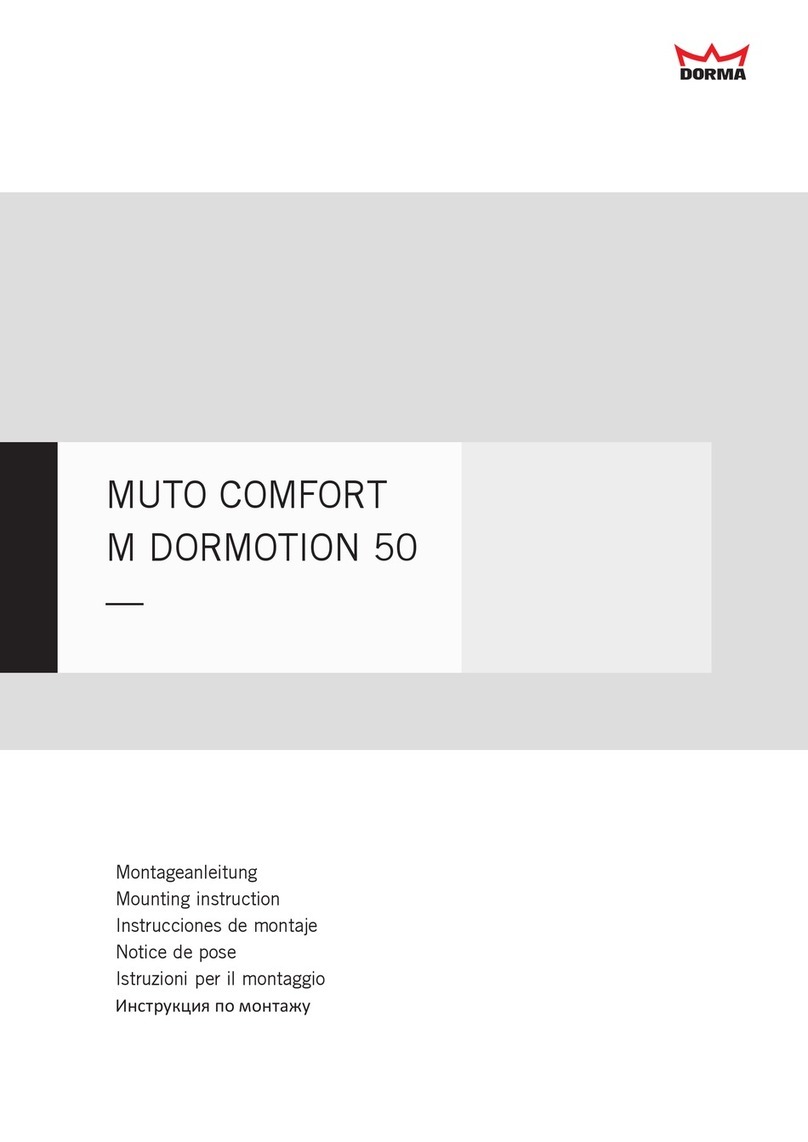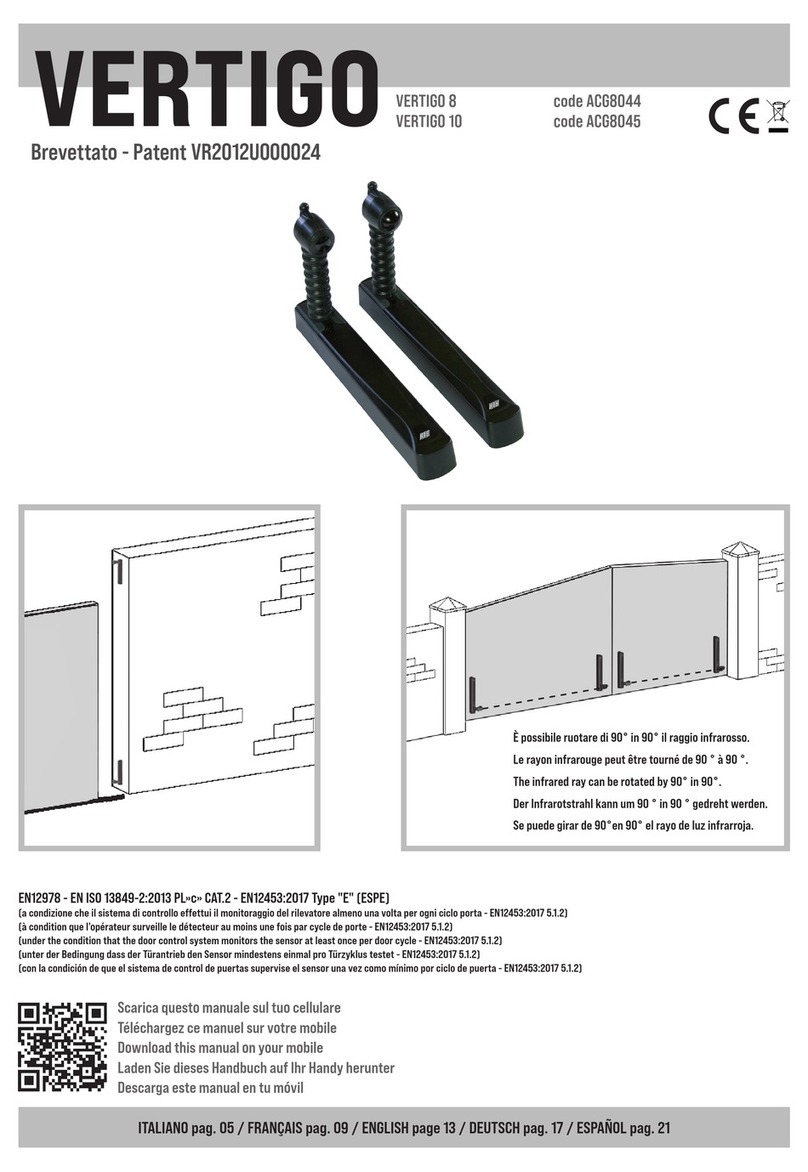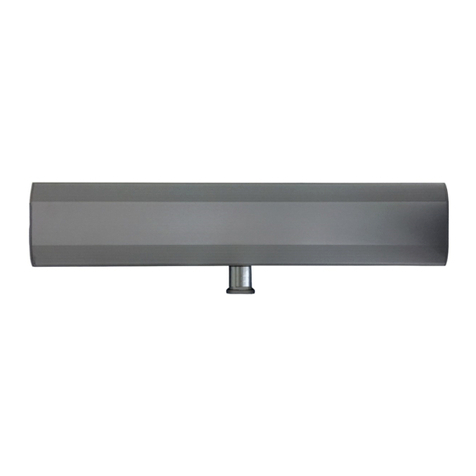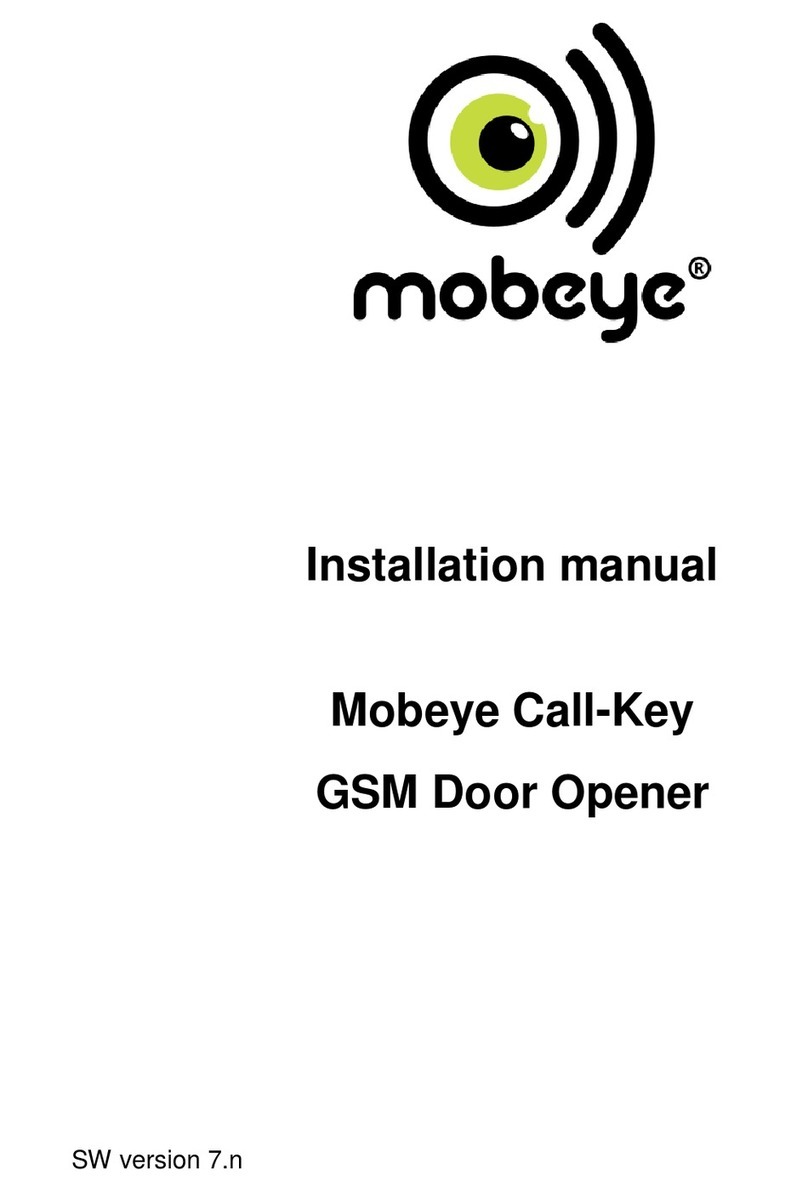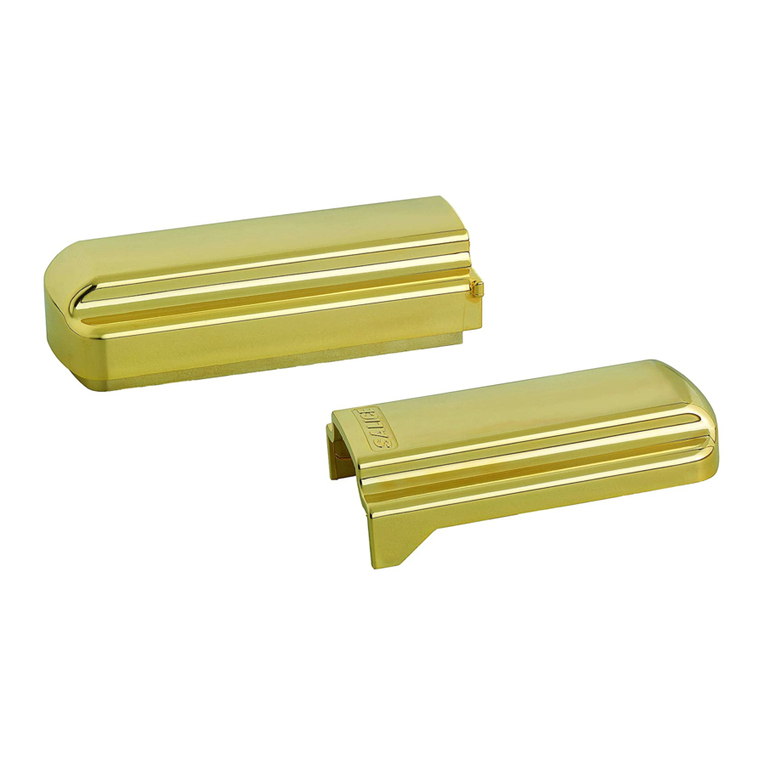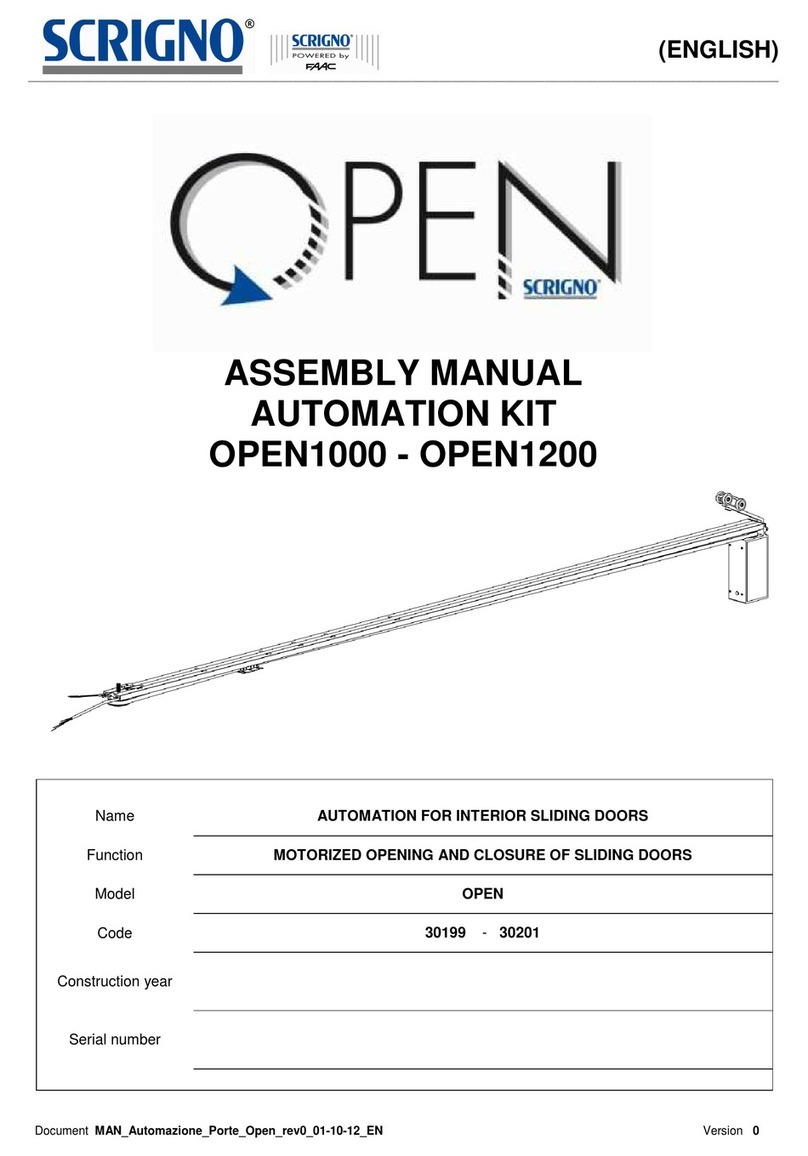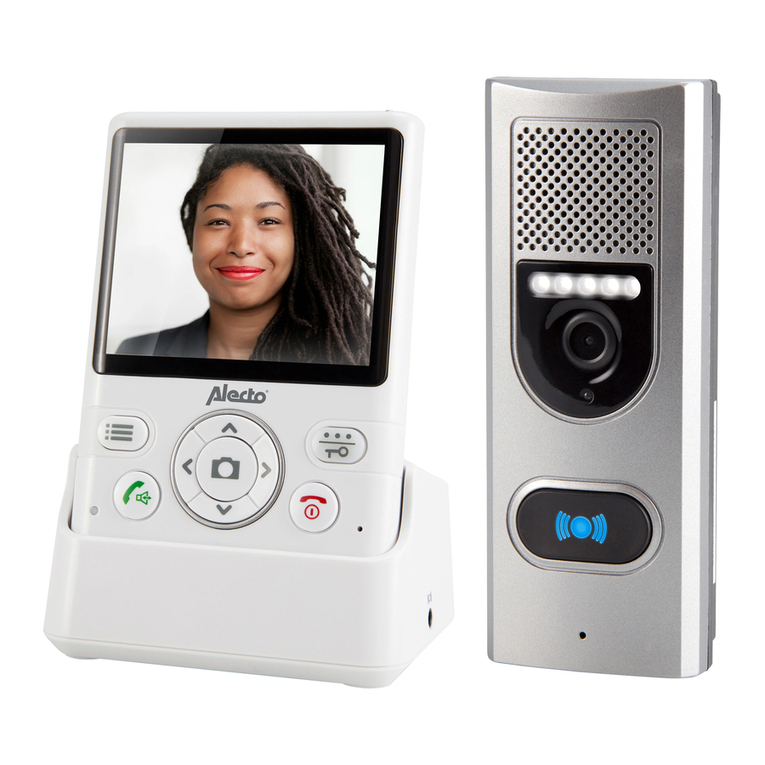
3
IMPORTANT SAFETY INSTRUCTIONS FOR THE
INSTALLATION
WICHTIGE SICHERHEITS ANLEITUNGEN FÜR DIE
INSTALLATIONEN
G
BD
- ATTENTION -
FOR THE SAFETY OF THE PEOPLE IT IS IMPORTANT TO FOLLOW
ALL THE INSTRUCTIONS.
1° - This handbook is exclusively addressed to the specialized
personnel who knows the constructive criteria and the protection
devices against the accidents for motorized gates, doors and
main doors (follow the standards and the laws in force).
2° - Before proceeding with the installation, the installer must
forecast the risks analysis of the final automatized closing and
the safety of the identified dangerous points (following the
standards EN 12453).
3° - Before carrying out any installation, regulation or maintenance
operation of the system, take off the voltage by operating on the
special magnetothermic switch connected upstream it.
THE RIB COMPANY DOES NOT ACCEPT ANY RESPONSIBILITY
for possible damages caused by the non observance during the
installation of the safety standards and of the laws in force at present.
KEEP THESE INSTRUCTIONS WITH CARE
Data described by this manual are only Indicative.
RIB reserves to modify them at any time.
Install the system complying with current standards and regulations.
MAINTANANCE
Must be carried out every six months, only by authorized personnel
in agreement with the safety rules and with the manufacturer’s
instructions.
- The safety accessories must be maintained in good and efficient
conditions in accordance with the manufacturer’s instructions.
- Verify the presence and readability of the original markings on the
product.
- Replace the batteries when requested by the system (see the chart
“IN CASE OF DIFFICULTIES”).
- Clean the lenses on the transmitter and the receiver using a wet
cloth.
- Check that the packaging containers and the bellows are intact. If
they are damaged, they must be replaced.
- Check the elasticity of the bellows by folding them and observing
whether they return to their original position.
- ACHTUNG -
FÜR DIE SICHERHEIT DER PERSONEN IST ES WICHTIG, DASS
ALLE ANWEISUNGEN GENAU AUSGEFÜHRT WERDEN
1° - Diese Betriebsanleitung dient ausschließlich dem
Fachpersonal, welche die Konstruktionskriterien und die
Sicherheits-Vorschriften gegen Unfälle für Tore, Türen und
automatische Tore kennt (geltende Normen und Gesetze
beachten und befolgen).
2° - Vor der Installierung muss für die automatische Schließung
und zur Sicherheitsgewährung der identifizierten kritischen
Punkte, eine Risiko Analyse vorgenommen werden mit der
entsprechenden Behebung der identifizierten, gefährlichen
Punkte. (die Normen EN 12453:2017 befolgend).
3° - Vor jeglichem Eingriff, sei es Installation, Regulation oder Wartung
der Anlage, muss vorher die Stromzufuhr unterbrochen werden,
den dafür bestimmten Magnetthermo-Schalter drücken, der am
Eingang der Anlage installiert ist.
DIE FIRMA RIB ÜBERNIMMT KEINE VERANTWORTUNG für eventuelle
Schäden, die entstehen können, wenn die Installierungsvorschriften
die den gültigen Sicherheitsnormen entsprechen, nicht eingehalten
werden.
INSTALLATIONSVORSCHRIFTEN BEACHTET WERDEN
Die in diesem Handbuch aufgeführten Daten sind ausschließlich
empfohlene Werte. RIB behält sich das Recht vor, das Produkt zu
jedem Zeitpunkt zu modifizieren.
Die Anlage muss in Übereinstimmung mit den gültigen Normen und
Gesetzen montiert werden.
PFLEGE UND WARTUNG
Das darf nur von autorisiertem Personal, in Übereinstimmung mit
Sicherheits-Vorschriften und Anweisungen des Herstellers, alle sechs
Monate gemacht.
- Die Sicherheitsvorrichtungen müssen in einwandfreiem Zustand
gehalten und gemäß den Anweisungen des Herstellers verwaltet
werden.
- Überprüfen Sie das Vorhandensein und die Lesbarkeit der ersten
Markierung des Produktes.
- Wechseln Sie die Batterien, wenn das System fragt (siehe Tabelle
“IM FALLE VON SCHWIERIGKEITEN”).
- Reinigen Sie die Linsen auf Sender und Empfänger mit einem
feuchten Tuch.
- Überprüfen Sie die Unversehrtheit der Gehäuse und Bälge. Falls sie
beschädigt sind, müssen sie ausgewechselt werden.
- Prüfen Sie die Bälge auf ihre Biegsamkeit und stellen Sie sicher,
dass sie in ihre ursprüngliche Position zurückkehren.
